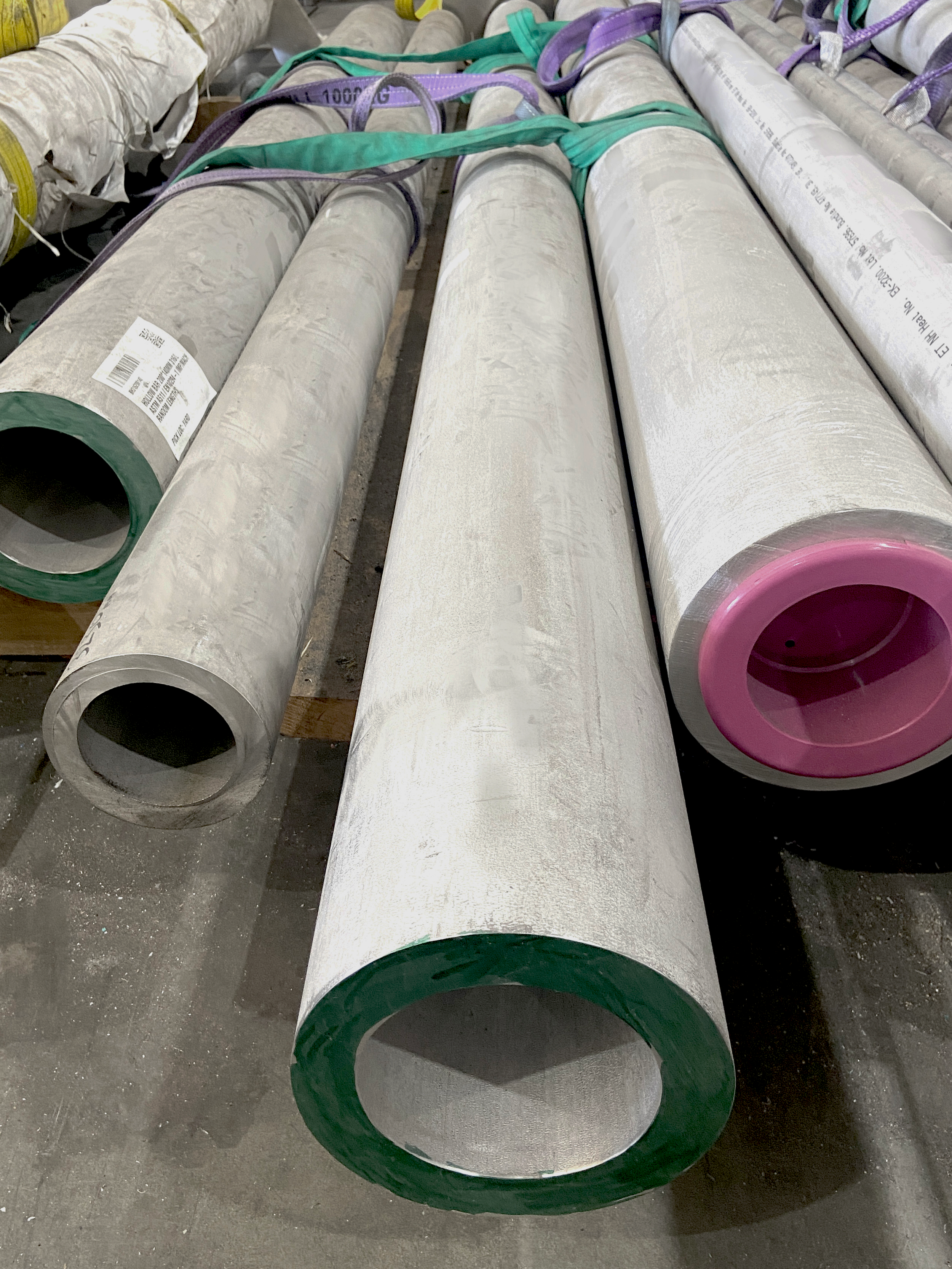What is Hollow Bar? The ins and outs
What is Hollow Bar?
Hollow Bar is essentially what it says in the name – it is Bar, which can be constructed from Stainless steel and various other materials, with a hollow centre.
It is measured by giving an inner diameter (ID) and outer diameter (OD), and the purpose of the hollow centre is retaining all the strength and stability of solid Bar whilst significantly reducing its weight, making it ideal in many engineering applications and industries.
Keep reading for a summary on how Hollow Bar is manufactured, its advantages, uses and industry applications.
How it is made
There are a few ways to create Hollow Bar, with the process depending on material type and dimensional tolerance requirements.
Hot extruding.
Very similar in process to the hot extruding of seamless pipe per ASTM A312 and ASTM A511.
Drilling.
This process involves sending a drill through solid Bar. This process can produce highly accurate part dimensions for critical applications.
Centrifugal casting.
This is when a round mould is rotated at high speeds as molten metal is poured in, forcing the molten material to the inside mould wall where it cools and hardens. This results in Hollow Bar that is dense and uniform.
The difference between Hollow Bar, Tube and Pipe
The essential differences between these three similar looking products are:
How they are manufactured;
Their applications;
The way they are measured.
A brief guide on the differences between Hollow Bar, Tube and Pipe.
Hollow Bar v Tube for structural applications
Hollow Bar can be made to be homogeneous and can also possess very tight dimensional tolerances, which can be more challenging to achieve with Tube. Tube also should be annealed or heat-treated after welding to ensure that a homogenous product is being created. Welding processes can create different crystalline structures near the weld zone which could affect the desired mechanical properties of the Tubing. The manufacture of Hollow Bar (no welding required) allows it to avoid any of these potential issues.
The advantages of Hollow Bar
The greatest advantage hollow Bar has over solid Bar is the possibility to more closely match BOTH the inner and outer diameters to the finished machined size. Whether for simple bushes, blanks for gears or complex bespoke parts, significant labour and costs can be saved by reducing boring operations. Further advantages include:
Strength-to-weight ratio
Hollow Bar possesses a great advantage in its strength-to-weight ratio. It has uniform wall thickness, which makes it much stronger than solid Bar of the same weight.
Stress-resistance
Hollow Bar also has a much higher resistance to torsional stress, which can cause damage to solid Bar, making it ideal for applications that require high-strength and high-torsional stiffness, such as drive shafts and axles.
Versatility
Hollow Bar is also extremely versatile. It can be machined, welded, and formed into various shapes and sizes for complex engineering projects that require precise components.
Industries and uses
Oil and Gas
Hollow Bar is used to make drill collars and subs in in oil well drilling operations. Drill collars are used to add weight to the drill bit and keep it in the wellbore, while subs are used to connect the drill collars to the drill pipe. Hollow Bar is also used in the production of pumps and valves due to its corrosion resistance and strength.
Automotive
The manufacture of several vehicle structural parts such as exhaust systems, suspension components, bumpers, and drive shafts utilise Hollow Bar. It is used in exhaust systems due heat resistance and in structural components due to its strength.
Aerospace
Hollow Bar is used in the construction of aircraft parts due to its strength and durability, corrosion resistance, heat resistance, lightweight and easily machinable nature. Lightweight factor improves fuel performance, whereas corrosion resistance and heat resistance factors protect from atmospheric elements.
Chemical Processing
Stainless steel Hollow Bar is used chemical processing equipment such as heat exchangers, reactors, and pipelines; its corrosion-resistive property protects from acids, alkalis, and other corrosive chemicals.
Food
Being corrosion-resistant, heat-resistant, and easy to clean, Stainless steel Hollow Bar ensures food safety and maintains food standards. It is used in food processing equipment such as mixers, conveyors, and storage tanks.
Pharmaceutical
Stainless steel Hollow Bar is used in a variety of medical equipment, including bioreactors, distillation columns, and centrifuges. Its corrosion resistance, strength, durability, smooth surface, and non-toxic behaviour ensures that it will not leach chemicals or toxins.
Where to get your hands on it
We have an extensive range of Stainless steel Hollow Bar in stock - check out what we have here, and make your enquiries here.
It gets even better - we’re in the process of purchasing 20 new sizes of Hollow Bar 316/L ASTM A511 / EN10294-1, coming later this year:
36*20mm
40*28mm
50*32mm
56*28mm
63*50mm
71*45mm
80*40mm
80*63mm
90*63mm
100*63mm
118*80mm
132*71mm
140*80mm
150*80mm
160*132mm
170*118mm
180*150mm
200*160mm
236*150mm
250*200mm
Get in touch with our team to find out more, and stay tuned with our news updates and social media to get notified of this arrival!
A rhyme for your time
Constructing using Bar that is hollow, we assure you it will bring no sorrow!
References


